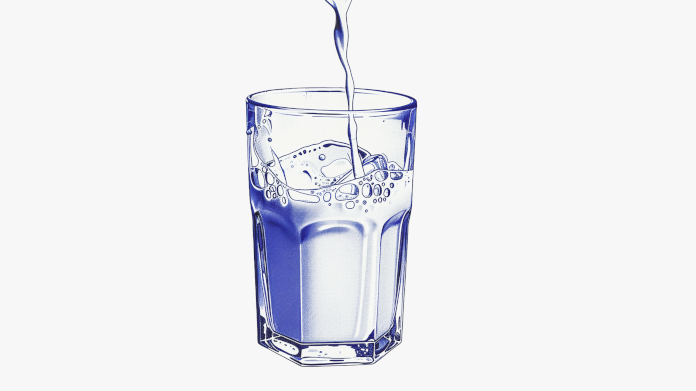
Avoid heavy meals for better digestion
Of all the nutrients we ingest, fats are the most difficult - and take the longest - to break down. After a particularly high-fat meal, it can be difficult for the digestive system to perform its role properly, resulting in nausea, a feeling of heaviness and bloating... So beware of eating too much fat!
It’s not a question of eliminating all fatty acids from the diet as they’re essential for health. It’s more about applying moderation and prioritising ‘good’ fats: vegetable oils (olive, rapeseed, nut ...), nuts and seeds (hazelnuts, almonds, cashew nuts, sesame seeds ...), avocados, oily fish (sardines, salmon)
How should you eat to improve your digestion?
Eating is quite an art! By following certain rules, you can simplify the work your digestive organs have to do:
- eat 3 meals a day, at regular times;
- avoid stress and anxiety while eating;
- chew your food well before swallowing. Saliva contains enzymes called amylases which initiate the digestive process in the mouth;
- drink plenty of water with your meals and at other times;
- and above all, eat reasonable-sized portions. Stop before you feel ‘completely stuffed’.
Ginger for preventing digestive discomfort
Ginger is a plant native to India where the root is used both in cooking and in traditional medicine. Brilliant for flavouring curries and other stew-type dishes, it has also been used for thousands of years as a tonic by the Chinese.
Scientific research has shown that ginger also helps to maintain digestive health (1). One way to increase your intake is to take a ginger supplement with a high content of gingerols, one of the plant’s key active ingredients (for example, Super Gingerols).
Get checked out by your doctor
If you regularly experience digestive problems that are affecting your day-to-day activities, you should perhaps book an appointment with your GP. A blood test or general check-up may identify allergies, irritable bowel syndrome or some other condition affecting your digestion (2).
With a proper diagnosis, you’ll be able to modify your diet, excluding any problematic foods, and if necessary, take an appropriate remedy.
Liquorice, a plant that’s beneficial for the digestive system
When you hear the word liquorice, do you automatically think of the sweets? Well liquorice is first and foremost a plant that promotes good digestion (3). Highly-fragrant, the root can be chewed, or consumed as a powder, tea or decoction.
Supplement-wise, it’s best to opt for deglycyrrhizinated liquorice, to prevent any potential side-effects from glycyrrhinic acid (try, for example, the product DGL).
Physical exercise improves digestion
Taking regular exercise encourages the digestive system to work properly and helps maintain good intestinal transit. However, it’s not a good idea to launch into an intensive training session straight after a heavy meal – it could cause anything from acid reflux to vomiting. Far better for helping your food go down easily is to go for a walk.
Stock up on calcium
Everyone knows that calcium is essential for strong bones. But it does so much more! It also helps the body’s digestive enzymes to function normally(4).
There are many dietary sources of calcium including certain dairy foods, broccoli, almonds, sesame seeds and wholemeal bread. To boost your daily intake, you can also supplement with calcium orotate for example, and to increase your intake of enzymes, try the supplement Digestive Enzymes.
Add bacteria to the menu
Who hasn’t been recommended yogurt with active bifidobacteria to improve intestinal transit? In fact, this type of dairy and fermented milk help those who are lactose-intolerant to digest it more easily (5).
The kind of bacteria added to these foods can also be found in dietary supplements containing various ‘gut-friendly’ strains of bacteria (such as Lactobacillus rhamnosus GG with 10 billion micro-organisms per dose, or the patented supplement Colon Friendly).
Psyllium husk for slow transit
If your bowel movements are infrequent and your large intestine is working a little too slowly for your liking, psyllium or plantago ovata, a plant indigenous to desert regions, could be the answer.
Studies have shown that psyllium seed and husk help regulate transit (6). This plant may, in particular, help to soften stools, which could be particularly beneficial for pregnant women or those suffering from haemorrhoids.
Le psyllium peut se consommer incorporé dans l’alimentation ou sous forme de complément alimentaire (comme Psyllium Seed Husk).
References
- Bode AM, Dong Z. The Amazing and Mighty Ginger. In: Benzie IFF, Wachtel-Galor S, editors. Herbal Medicine: Biomolecular and Clinical Aspects. 2nd edition. Boca Raton (FL): CRC Press/Taylor & Francis; 2011. Chapter 7.Available from: https://www.ncbi.nlm.nih.gov/books/NBK92775/
- https://www.ifop.com/publication/troubles-digestifs-quand-faut-il-consulter/
- Pastorino G, Cornara L, Soares S, Rodrigues F, Oliveira MBPP. Liquorice (Glycyrrhiza glabra): A phytochemical and pharmacological review. Phytother Res. 2018 Dec;32(12):2323-2339. doi: 10.1002/ptr.6178. Epub 2018 Aug 17. PMID: 30117204; PMCID: PMC7167772.
- Eich T, Ståhle M, Gustafsson B, Horneland R, Lempinen M, Lundgren T, Rafael E, Tufveson G, Zur-Mühlen BV, Olerud J, Scholz H, Korsgren O. Calcium: A Crucial Potentiator for Efficient Enzyme Digestion of the Human Pancreas. Cell Transplant. 2018 Jul;27(7):1031-1038. doi: 10.1177/0963689718779350. Epub 2018 Jun 26. PMID: 29945463; PMCID: PMC6158545.
- Oak SJ, Jha R. The effects of probiotics in lactose intolerance: A systematic review. Crit Rev Food Sci Nutr. 2019;59(11):1675-1683. doi: 10.1080/10408398.2018.1425977. Epub 2018 Feb 9. PMID: 29425071.
- Noureddin S, Mohsen J, Payman A. Effects of psyllium vs. placebo on constipation, weight, glycemia, and lipids: A randomized trial in patients with type 2 diabetes and chronic constipation. Complement Ther Med. 2018 Oct;40:1-7. doi: 10.1016/j.ctim.2018.07.004. Epub 2018 Jul 10. PMID: 30219432.
3 Days
Great
The efficient delivery.
CLA VOETS
9 Days
Great service
Great service items dispatched straight away and arrived on time
M***** G***
13 Days
A good webshop for supplements
A good webshop for supplements, it has a large selection of them and considering the quality, the pricing offers good value for money. The ordering process is easy and the products are sent straight away.
Maurice
15 Days
Great quality
Products are of great quality and fast delivered.
Fred Laan
16 Days
SuperSmart destaca por la calidad de…
SuperSmart destaca por la calidad de sus productos.
GONZALEZ PALACIN Luis
17 Days
snelle levering,perfect product.
snelle levering,perfect product.
robert
17 Days
Been a customer for over 15 years and…
Been a customer for over 15 years and find their products along with the service excellent. I recommend Super Smart to all my friends.
Del Chandler
18 Days
Excellent product and service
The product was excellent and so were the delivery and the service
F. Ferlitz
20 Days
Never an issue ordering
Never an issue ordering. Simple and to the point. And product always comes the following day. Quality is great too!
Andrea
21 Days
Excellente service & products with rare…
Excellente service & products with rare revelation supplements I love ❤️
Giovanna Escalera
22 Days
Fast shipping
Fast shipping, products as ordered!
Coindozer
22 Days
The item arrived on time and is what…
The item arrived on time and is what was stated in the order.
HARDY Chris
25 Days
Very good products
Very good products. Very reliable. Quick delivery.
MIFSUD Joseph
29 Days
Fast shipping
Fast shipping, good products (just shipping costs to my country are extremely high).
Tanja Matko
29 Days
Many thanks.
Many thanks.
Alan



